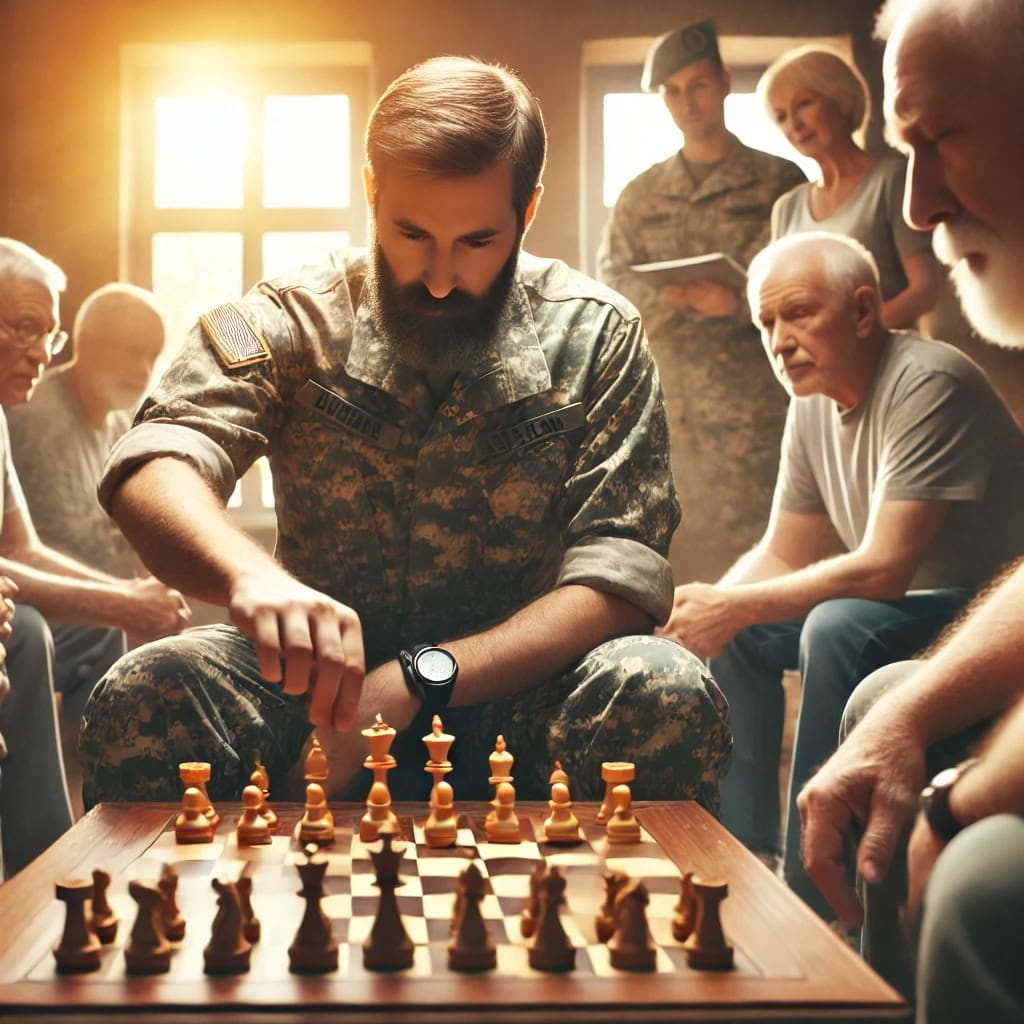When U.S. Army Staff Sgt. Patrick Barrington was handed a chessboard in 2013, he had no idea it would change his life. At the time, he was battling severe PTSD and paranoia, searching for a way to quiet his mind. What started as a simple distraction quickly became his most powerful therapy tool – helping him replace painful flashbacks with strategic thinking. Today, Barrington teaches algebra and chess to at-risk teens, passing on the very game that once saved him.
As an international chess grandmaster, I’ve come across countless stories like his. Veterans coping with PTSD are finding real solace in those 64 black-and-white squares. Here’s why: Chess demands focus, grounding players in the present moment. When you’re calculating a complex combination, intrusive thoughts take a back seat. This is something I’ve witnessed time and again in my own work, especially when teaching veterans who need a positive channel for stress and hypervigilance.
Research backs up these experiences. In clinical settings, chess is shown to reduce anxiety and sharpen cognitive skills – both areas often impaired by PTSD. It also fosters community. You’d be surprised how quickly two strangers bond over a game, no words needed. For veterans feeling isolated or misunderstood, this sense of belonging can be a game-changer.
I often tell my students that chess is more than just pawns and rooks: it’s a platform for personal growth! You learn to anticipate an opponent’s strategy, handle the pressure of tight time controls, and accept losses as part of the journey. These very skills – planning ahead, staying calm under stress, and rebounding from setbacks – are integral to trauma recovery.
Of course, chess isn’t a magic solution. For most veterans, it should complement therapy, not replace it. And not everyone enjoys the competitive aspect. The key is to keep it fun and constructive, using each game as a stepping-stone to a healthier mindset.
Here’s one quick list I often share:
- Embrace Chess for Focus: When anxious thoughts kick in, shift your mind to the board.
- Celebrate Small Wins: Spotting a tactic can restore confidence in your mental agility.
- Share the Experience: Play with peers, join clubs or online communities – connection is healing.
- Remember: It’s a tool, not a cure-all. Combine it with professional support.
According to my personal experience, chess offers mental clarity, the moment of triumph accompanied by growing confidence, and that crucial lifeline of social connection.
Let’s continue to advocate for creative ways – whether it’s chess, music, or art – that support veterans. Every move on the board is a step toward new hope. ♟️



